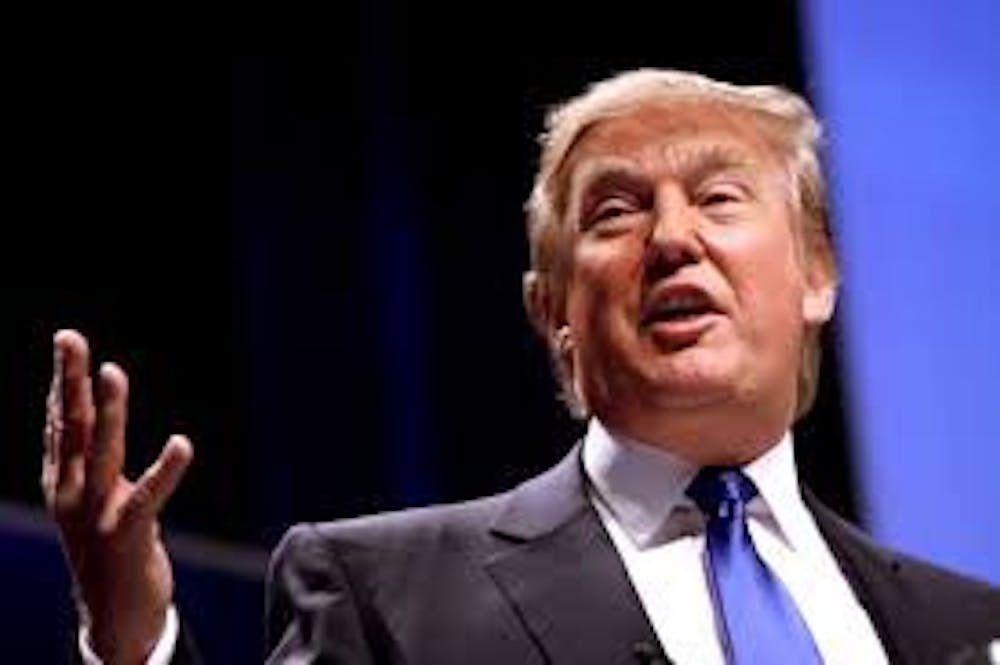If President Donald Trump’s proposed budget is ever enacted, the United States will become a third-world country. Obviously, Trump’s budget will not cause the electrical grid to collapse or turn our many interstates into dirt roads. Yet if you are politically-minded, like me, then you might consider the priorities of the federal government to be more indicative of a nation’s modernization and progression. The priorities set forth by the Trump budget reflect characteristics of a paranoid nation which is more or less unconcerned about enhancing the wellbeing of its citizens and, if enacted, will only push America down a dangerous road many countries in the developing world currently find themselves in.
The most striking features of Trump’s budget include massive spending increases on departments dealing with national security, including a 10 percent increase for the U.S. Department of Defense, a 6.8 percent increase for the U.S. Department of Homeland Security and a 5.9 percent increase for the U.S. Department of Veterans Affairs. Perhaps more striking is the much more substantial budget cuts he will be making to the Environmental Protection Agency, the U.S. Department of Labor and the U.S. Department of Education, which will each face an appropriations decline of 31.4 percent, 20.7 percent and 13.5 percent respectively.
Although some conservatives might downplay these budgetary alterations by noting that President Ronald Reagan’s budget looked quite similar to Trump’s, it is crucial to address key historical differences between the two eras. In the 1980s, the United States was engaged in an ideological struggle with the Soviet Union. At the time, many policymakers truly believed failing to win the Cold War would spell the end of liberty, capitalism and democracy, and thus necessitated enormous defense spending to outpace Russian military infrastructure and support anti-Communist struggles from Central America to Afghanistan. While many Liberals objected to this strategy and some of the morally ambiguous anti-Communist interventions, it was nonetheless agreed that defense spending was critical to defeating the Russians in the long-game and, thus, to the very existence of the world order as we knew it. Of course, we are at war right now with the Islamic State. Yet, both the magnitude and immediacy of the challenge are dwarfed by the Cold War, and the radical group had been consistently losing territory under Obama’s more modest defense budget.
High defense spending is the first characteristic of a developing country. For instance, South Sudan and Iraq lead the world in military spending, allocating roughly 10 percent of their annual GDP toward that end. Both nations have notoriously harsh geopolitical climates, as the former faces an arch enemy to the north while the latter has an arch enemy within its own borders. These existential threats unsurprisingly take up a majority of the government’s attention and finances, almost always to the detriment of public works programs that might benefit health, education and overall life satisfaction. Trump’s budget would cause American defense spending to take up approximately seven percent of annual GDP, placing it near the ranks of South Sudan and Iraq. Yet, at least the underdevelopment of these two nations is easier to excuse because of their demanding geopolitical situations. The United States, however, lacks this same immediacy.
The most concerning outcome of Trump’s budget is ultimately the massive cuts to the EPA, U.S. Department of Education and other philanthropic missions of the government that serve to enhance citizen satisfaction. Poor countries either lack the funds needed to finance environmental cleanup programs, anti-poverty programs and strong education systems, or are inhibited by systemic corruption. America does not have these excuses. As the richest country in the world, the United States can afford to clean up the environment and care for its most vulnerable citizens. The ability to appropriate funds for the purpose of helping the elderly receive food, providing clean air and water to children and educating the underprivileged is what fundamentally distinguishes the developed world from the developing world.
The U.S. government has a duty to provide its citizens with the essentials of a first world country. Americans deserve a strong military, but they also deserve healthier and happier lifestyles. Of course, the federal government is not always the answer, and in many cases there are tangible benefits to reducing the government’s size and expenditure. However, Mr. Trump’s plan of doing this is irresponsible and, instead of making the country “great again,” will only serve to put the country further behind its first-world counterparts.
Jesse Berman is an Opinion columnist for The Cavalier Daily. He can be reached at opinion@cavalierdaily.com.







